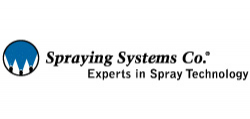TPC is a registered, commercial builder in Victoria and a registered trade contractor for cleanroom construction in Queensland. We also have partners in most states to ensure our customers receive the service and support as quickly as possible.
Over the past 21 years Total Precision Cleanrooms Aust has earned an enviable reputation for delivering high quality complex and innovative projects throughout all of Australia. Unlike your regular builders, we have genuine hands-on experience within the pharmaceutical, life sciences, food and beverage and bio-containment industries. Our team of professionals can provide design and management support throughout the project including regulatory and compliance advice, allowing your project to move forward quickly with minimal delay.
We work with all types of Industries and experts such as architects, consultants, trades, industry experts, government departments, universities, multinationals, start-ups and small to medium size businesses. We cater for all budgets, big or small. We can assist our clients with low budget installations to the most complex technically challenging projects.
We believe involvement in every aspect of the project from concept through to completion is integral to the delivery of a successful project.
A list of Questions and Answers that are relevant to the Construction phase:
-
What is a laboratory?
What is a laboratory?
A laboratory is a facility that provides controlled conditions in which scientific or technological research, experiments, and measurement may be performed. Laboratory services are provided in a variety of settings: physicians’ offices, clinics, hospitals, universities, pharmacies, and manufacturing businesses.
-
What is the difference between a lab and a cleanroom?
What is the difference between a lab and a cleanroom?
A laboratory is a space dedicated to scientific research, experiments, and testing, as well as the manufacture of certain types of products. There is nothing in this definition that requires the laboratory environment to be controlled in any way. While a pharmaceutical manufacturer might have a highly controlled laboratory environment, a local high school might also have a lab, wherein students conduct experiments under no environmental controls.
When you are in the business of manufacturing, whether pharmaceuticals, food, beverage, or industrial products, quality is always a critical concern. When quality control is paramount, you must test products, and most of that testing likely occurs in a lab. Some products will even need to be manufactured in a laboratory setting. But usually, your laboratory is not the right environment to ensure quality in your manufacturing processes. If it is just a lab in name only, then it is not a true cleanroom.
-
What is a cleanroom?
What is a cleanroom?
A cleanroom is a controlled environment, specifically one that controls the level of contamination from particles, along with other factors such as temperature, humidity, static electricity, etc. Controlling all these variables protects your processes and products from contamination or conditions that could compromise the integrity of those products and processes.
Cleanrooms are required to meet specific standards as to the number of particles acceptable within the space, and to meet that standard, the cleanroom is regularly tested. Equipment and systems are put in place to maintain the cleanroom environment, including filtration systems, air flow systems, and access control procedures for entering the spaces, such as airlocks (MAL and PAL), Pass through boxes, Air showers for both materials and people. Lab coats or gowning for personnel working in the cleanrooms. In a nutshell, clean rooms are those rooms that meet the code of GMP requirements as defined in the sterile code of GMP, i.e. Annex 1 of both the EU and PIC/S Guides to GMP and other standards and guidelines set by local health authorities.
-
Why do you need a cleanroom instead of just a lab?
Why do you need a cleanroom instead of just a lab?
If you are not controlling your laboratory environment, there is really no point in having one. It is not going to ensure product quality, and safety and these things are critical for sound manufacturing processes. As an example, industries like electronic manufacturing, pharmaceutical, Aerospace, and Defence, cleanrooms are either required by law or are enforced as an industry standard.
-
What is the difference between a cleanroom & a containment facility?
What is the difference between a cleanroom & a containment facility?
A containment facility is a specialised space which ensures that materials within the area do not migrate from the facility to the general environment. The containment facility may be a cleanroom, but additionally have additional controls and standards to handle the materials effectively within.
Containment facilities are used to handle live viruses and bacteria such as COVID-19 (SARS-CoV-2) and many other sensitive materials such as genetically modified organisms and materials governed by the Office of the Gene Technology Regulator (OGTR), cytotoxic materials, steroids, hormones, and beta-lactams (i.e., penicillin).
The classification of containment facilities is different depending on the usage of the area. There are many different containment methodologies, these are:
1) Physical containment (PC 1-4), requires certification in Australia by the OGTR,
2) Biological Containment (Biological Safety Levels, the four biosafety levels are BSL-1, BSL-2, BSL-3, and BSL-4, with BSL-4 being the highest (maximum) level of containment. BSL-4 facilities are typically designed to handle materials such as the viral haemorrhagic fevers (VHFs) group of diseases comprises Lassa fever (LF), Congo-Crimean haemorrhagic fever, Ebola and Marburg virus infections. There are additional specific rules and designations for animal research (ABSL), agricultural research (BSL-Ag), and other types of research,
3) Industrial Hygiene and Toxicology – requires the suitable design of the facility to safely handle and control materials which have a low therapeutic dose (High potency) (i.e., cytotoxic compounds, beta-lactams, poisons, steroids, and hormones). The evaluation and design are based on toxicological data for the materials used or made in the process and containment levels are based on the potential therapeutic dose. Facility design and engineering controls are used to limit exposure to staff and environment. PPE is a last resort in contamination control. These facilities are commonly referred to as high potency facilities. The acceptable levels are specified and governed by SafeWork Australia. References for the contamination control for industrial hygiene applications are.
a. Toxicologist,
b. Safe Work Australia,
c. Safe Bridge,
d. ISPE Risk MAPP,
e. National Institute for Occupational Safety and Health (NIOSH) – USA.
-
Who needs a cleanroom?
Who needs a cleanroom?
Cleanrooms are used where the processing and handling of materials under normal room conditions would result in contamination of the product and process. The complexity of the cleanroom is commensurate with the process requirements.
-
What type of cleanroom do I need?
What type of cleanroom do I need?
This is a difficult question to answer at times as it is specific to the application. TPC can assist in providing guidance for the requirements of the cleanroom for your application. We have many years of experience in the health and life sciences industry to guide you through the specification and design of your new cleanroom facility.
-
What makes a cleanroom a clean room?
What makes a cleanroom a clean room?
A cleanroom is typically kept clean by using filtered air supplies and large air change rates to replace the air within the cleanroom many times per hour. The filtration can be High Efficiency Particulate Air (HEPA) filters depending on the cleanroom requirements and classification. These filters are certified to ensure that there is no leakage of air which by-passes the filter, therefore all air entering the facility is filtered. In addition, the materials used to construct the cleanroom are also non-shedding and do not add to the particulate load within the facility.
-
Which industries need cleanrooms?
Which industries need cleanrooms?
Animal facilities (BS-rated and SPF)
API manufacturing
Blood plasma and serum processing
Biosecurity/biocontainment
Cytotoxic (HPAP)
Steroids / Hormones
Beta-lactams
Diagnostics
Food manufacturing.
Distribution/logistic centres/warehouses
Fermentation and cell culture (mammalian and microbial)
Laboratories (R&D, QA, QC)
Medical devices
Packaging
Pilot plants
Solid dose, liquids, and creams
Sterile processing

























